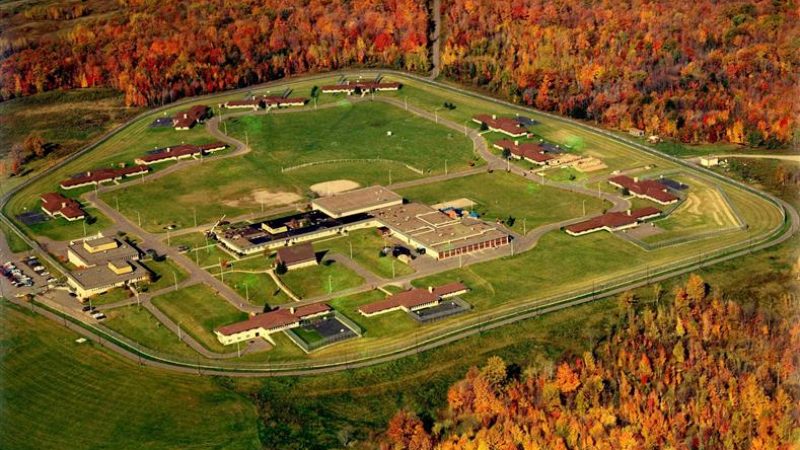By Patrick Poblete
WisPolitics.com
During a fractious meeting that spanned the better part of three-and-a-half hours, several counties that had previously submitted proposals to operate youth lockups expressed concerns about the viability of the projects to the Department of Correction’s Juvenile Grant Committee.
The state’s juvenile justice system was restructured after then-Gov. Scott Walker signed Act 185 into law in 2018. The measure set a deadline to close the youth prisons at Lincoln Hills and Copper Lake, mandated that the state build and operate two new facilities to house serious juvenile offenders, and established county-run Secure Residential Care Centers for Children and Youth, or SRCCCYs, for less serious juvenile placements.
The act also established the grant committee to evaluate counties’ SRCCCY proposals and allocate funds to cover the design and construction costs. But uncertainty has swirled around the process, as highlighted by five-page memo submitted to the committee by the Wisconsin Counties Association raising a number of concerns and deal-breakers, which a Brown County official labeled “serious as a heart attack.”
>> WisPolitics is now on the State Affairs network. Get custom keyword notifications, bill tracking and all WisPolitics content. Get the app or access via desktop.
Yesterday’s meeting was intended to be an opportunity for counties to provide feedback, ask questions and seek clarification from the committee before the panel finalizes and approves its grant application at the next meeting in two weeks.
But several counties instead provided withering scorn of the implementation of Act 185, and threatened to follow Fond du Lac County in dropping their bids to run SRCCCYs.
Mark Mertens of Milwaukee County’s Department of Health and Human Services kicked off the presentations by slamming Act 185 as a measure that “doesn’t go far enough.”
“This creates a situation where policy and fiscal realities are at odds with each other and provides the committee with the impossible task of knitting together the statewide system that will be heavily focused on new bricks and mortar and will fail to make the policy and cultural shifts necessary to rehabilitate Wisconsin’s youth or advance public safety,” he said.
Mertens also flagged the fiscal element of the measure, which he labeled as underfunded. He highlighted that at an estimated cost of $41.4 million, Milwaukee County’s program would singlehandedly exceed the committee’s $40 million budget for allocation. Dane County representatives also told the committee they “don’t know if we’ll move forward” if funding levels were not adjusted.
But the harshest feedback came from La Crosse County officials, who labeled a section of their presentation “Why La Crosse County May Pass on Submitting an Application to Operate a SRCCCY.”
Jason Witt, the county’s Human Services director, said the state’s juvenile justice is outdated and based largely on the adult corrections system and ripped lawmakers for passing up on an opportunity to change.
Witt noted that La Crosse County had not sent a juvenile to Lincoln Hills or Copper Lake in five years and touted the success of the county’s 365-day program. Witt said that in early phases of the discussions, such programs would be used to replace the beds lost by closing the youth prisons.
But Witt said based on current dynamics, he believed counties would have to choose between having a SRCCCY and operating 365-day programs under what he labeled as a “new intensive regulatory regime.” Witt noted that having an SRCCCY would more than double the county’s current annual cost and present a number of risks, such as maintaining statutorily mandated staffing levels and taking full responsibility to cover operating losses.
Representatives from Brown and Racine counties also laid out a number of concerns surrounding the shift of long-term operational costs from the state level to the county level.
Children and Families Secretary Emilie Amundson, a member of the Grant Committee, said in a statement the committee couldn’t address many of the concerns raised.
“Unfortunately, many of the items they shared are outside of the scope of the Grant Committee and would require legislative action and financial investment to the Act 185 legislation passed last year,” she said.
But Rep. Michael Schraa, R-Oshkosh, attempted to alleviate a number of the concerns, telling county representatives that Act 185’s trailer bill, will “answer a lot of your questions.”
“I would have loved to have gotten it on the floor to vote on this month, but it’s not happening,” he said. “It will happen in June. It will get done.”
Corrections Secretary Kevin Carr, meanwhile, said in a statement that “the substantial concerns we heard today are worth noting.”
The Grant Committee also agreed to a Wisconsin model of juvenile justice after several committee members debated changes to the draft text.
The model — a requirement of Act 185 — features a series of recommendations and best practices for juvenile justice in the state. The document had to be completed at yesterday’s meeting so it could be included as criteria for the final grant applications to be unveiled at the next committee meeting.
Lawmakers on the committee went back and forth for nearly 45 minutes on the language and tone surrounding a number of items before agreeing to a finalized version.
“If there’s still a county that wants to do this after watching all of this, I’d be amazed,” quipped committee member Rep. Mark Born, R-Beaver Dam.



